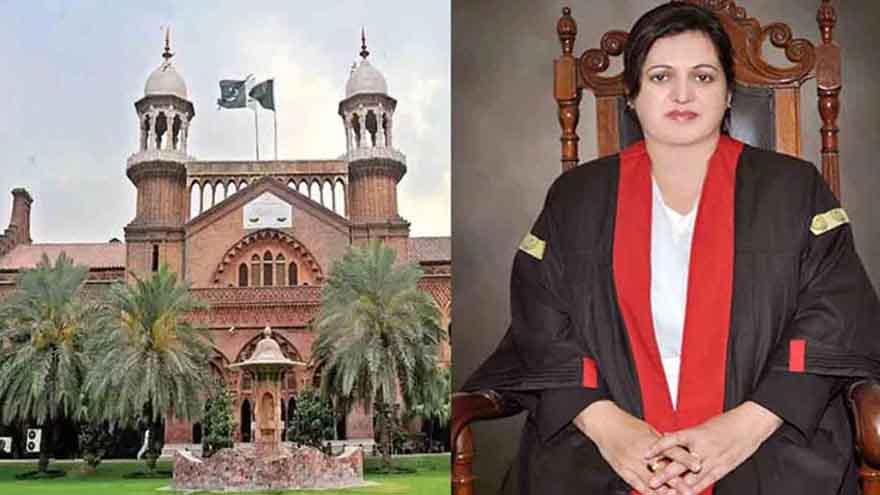- Pakistan army chief says future warfare will rely on technology over battlefield maneuvers Arab News
- Pakistan armed forces undergoing major transformation in multiple domains: CDF Munir Dawn
- Armed forces fully prepared to safeguard country’s…
Category: 1. Pakistan
-
Pakistan army chief says future warfare will rely on technology over battlefield maneuvers – Arab News
-

LHC gives police deadline to recover missing girl from Sahiwal
LAHORE (Muhammad Ashfaq) – The Lahore High Court (LHC) while hearing a petition seeking the recovery of a girl missing from Sahiwal, has granted police time until February 9 to recover her.
Chief Justice of the…
Continue Reading
-
Tirah: buried under snow and circumstance – Dawn
- Tirah: buried under snow and circumstance Dawn
- Tirah displacement Dawn
- No military operation underway in Tirah Valley, displacement seasonal: defence minister Geo News
- Kundi, Dr Ibad raise concerns over Tirah Valley operation The Nation…
Continue Reading
-
Armed forces ready to defend Pakistan’s sovereignty:Field Marshal – RADIO PAKISTAN
- Armed forces ready to defend Pakistan’s sovereignty:Field Marshal RADIO PAKISTAN
- Armed forces fully prepared to safeguard country’s sovereignty: CDF Geo News
- Field Marshal Munir says Pakistan Army shifting to tech-led, multi-domain warfare The…
Continue Reading
-
At least 3 terrorists killed after security forces launch large-scale operation in Bannu’s Domel – Dawn
- At least 3 terrorists killed after security forces launch large-scale operation in Bannu’s Domel Dawn
- Three militants killed in DI Khan operation as violence persists in K-P The Express Tribune
- 2 TTP militants killed in clash with security…
Continue Reading
-
Afghanistan and Pakistan Square Off
The most worrisome flash point in South Asia today lies not between the nuclear-armed rivals India and Pakistan but to the west, along the border between Afghanistan and Pakistan. A simmering conflict between these two neighbors now threatens to…
Continue Reading
-
Pakistan tells UN it expects permanent Gaza ceasefire, reconstruction from Peace Board – Arab News
- Pakistan tells UN it expects permanent Gaza ceasefire, reconstruction from Peace Board Arab News
- At the UN Security Council, Pakistan reaffirms support for Palestinian statehood Dawn
- Pakistan will not join Abraham Accords; stance on Palestine…
Continue Reading
-
At the UN Security Council, Pakistan reaffirms support for Palestinian statehood – Dawn
- At the UN Security Council, Pakistan reaffirms support for Palestinian statehood Dawn
- Pakistan will not join Abraham Accords; stance on Palestine unchanged, says FO Geo News
- Rare unity in PA against Pak ‘Board of Peace’ decision The Express…
Continue Reading
-
Ten surrender in Kohistan mega corruption scandal, seek asset forfeiture
PESHAWAR (Web Desk) – A significant development has taken place in the Kohistan financial scandal in Khyber Pakhtunkhwa, where 10 accused individuals surrendered before an accountability court and submitted…
Continue Reading
-
AJK cabinet approves launching of Health Card scheme in state – RADIO PAKISTAN
- AJK cabinet approves launching of Health Card scheme in state RADIO PAKISTAN
- PM Sehat Card launched in G-B, AJK The Express Tribune
- AJK Govt approves Health Card launch and restoration of ministers’ funds SZS Associated Press of Pakistan
- AJK…
Continue Reading